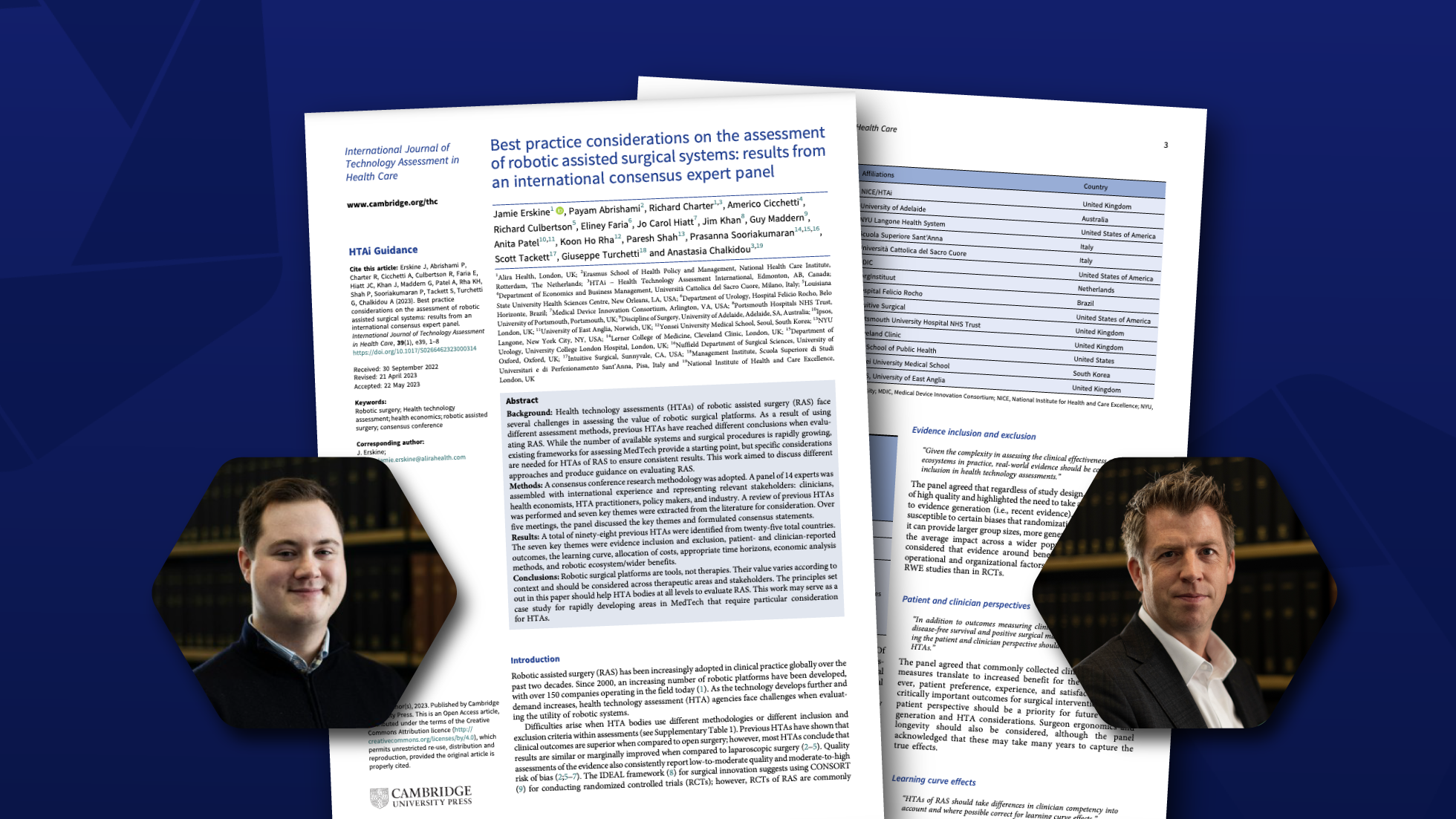Best Practices for Health Technology Assessment of Robotic Assisted Surgery
Robotic Assisted Surgery (RAS) has been increasingly used in clinical practice over the past quarter-century. Despite the promise of improved patient outcomes, the high cost of robotic platforms and consumables has prevented widespread adoption.
Health Technology Assessment (HTA) and Health Economics and Outcomes Research (HEOR) are multi-stakeholder evaluation methods that allow healthcare systems to make evidence-based decisions on what technologies to adopt. There have been over 100 HTAs of RAS to date, but due to variations in the methods used, these evaluations often came to differing conclusions, which has made purchasing and procurement decisions difficult.
Our team collaborated with HTAi (Health Technology Assessment International) to assemble a multi-stakeholder expert panel, including robotic surgeons, HTA professionals, health economists, policymakers, and industry representatives. The goal was to discuss different approaches and produce guidance on evaluating RAS.
The panel developed seven best-practice recommendations for evaluating RAS systems. The results were published in the International Journal of Technology Assessment in Healthcare. Access them now in Cambridge Core journal:
Our experts behind the article:
- Jamie Erskine
- Richard Charter
Contact us to learn how our deep expertise in market access, health technology assessment and medtech can help you bring your robotics innovations to patients.

Subscribe to our newsletter for the latest news, events, and thought leadership
